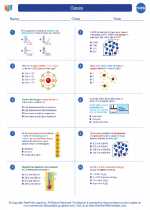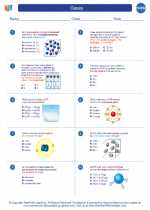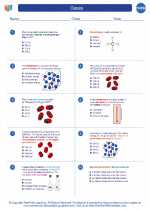Materials Science
Materials science is an interdisciplinary field that focuses on the properties and applications of different types of matter. It integrates elements of physics, chemistry, and engineering to understand and manipulate the properties of materials for various uses. The study of materials science encompasses a wide range of materials, including metals, ceramics, polymers, semiconductors, and composites.
Key Concepts in Materials Science:
- Structure and Composition: Understanding the atomic and molecular structure of materials and how it influences their properties.
- Properties and Performance: Investigating the physical, mechanical, thermal, and electrical properties of materials and how they behave under different conditions.
- Processing and Manufacturing: Techniques for shaping, treating, and assembling materials to achieve specific properties and forms.
- Characterization and Testing: Analyzing and evaluating materials through various methods such as microscopy, spectroscopy, and mechanical testing.
- Applications and Sustainability: Exploring the practical uses of materials in industries such as aerospace, automotive, healthcare, and energy, while considering environmental impact and sustainability.
Study Guide for Materials Science:
To effectively study materials science, it's important to grasp fundamental concepts and engage in hands-on learning experiences. Here's a guide to help you navigate the subject:
- Understand Atomic Structure: Familiarize yourself with the basic structure of atoms, including protons, neutrons, and electrons, as well as the arrangement of atoms in crystalline and non-crystalline materials.
- Explore Material Classes: Learn about different classes of materials, such as metals, ceramics, polymers, and semiconductors, and their unique properties and applications.
- Study Properties and Behavior: Delve into the physical, mechanical, thermal, and electrical properties of materials, and understand how these properties influence material behavior under various conditions.
- Examine Processing Techniques: Gain insights into methods for manufacturing, shaping, and modifying materials, including casting, forming, welding, and heat treatment.
- Engage in Laboratory Work: Participate in laboratory experiments to observe and test material properties, using techniques such as microscopy, spectroscopy, and mechanical testing.
- Explore Applications: Investigate real-world applications of materials in industries such as aerospace, automotive, biomedical, and renewable energy, and consider the impact of materials on environmental sustainability.
- Stay Updated: Keep abreast of advancements in materials science through scientific journals, conferences, and industry developments to understand the latest innovations and research trends.
By mastering the principles and applications of materials science, you can contribute to the development of new materials with enhanced properties and performance, as well as address critical challenges in areas such as renewable energy, healthcare, and environmental sustainability.
.


